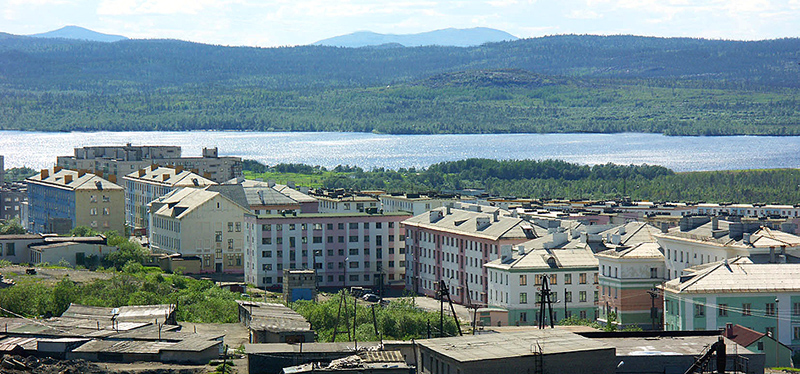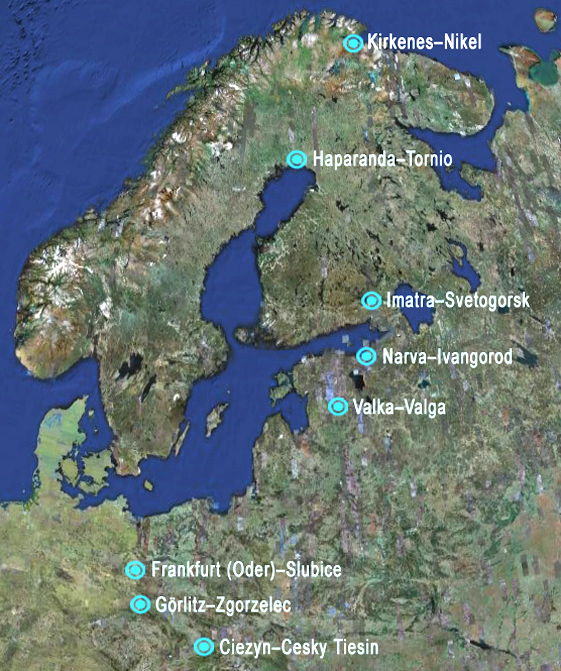Twin-towns Kirkenes Pechenga
"The Kirkenes-Pechenga Twin Town Experiment in the Barents Euroarctic Region" was a research and promotional project conducted by NSRG in Kirkenes in 2013-2017 based on a grant from the Regional Research Foundation of Northern Norway. Experiences and findings accrued under its execution are presently part of the materials analysed by Peter Haugseth in his thesis work
The Kirkenes-Pechenga Twin Town Experiment in the Norwegian-Russian borderland (In Norwegian: Tvillingby-eksperimentet i den norsk-russiske grensesonen) had its origin in previous Norwegian government's launch of the so-called “High North Initiative” (2006-2011). It produced much political publicity and put positive stress on many local and regional actors in the Norwegian and Russian Subarctic. Eventually, both large and small scale policy and praticies came to fruitition furthering closer, functional cross-border collaboration (CBC) between Norway, Finland, Sweden and Russia in the Barents Region. Formal go-aheads from Russian and Norwegian Ministries of Foreign Affairs were given to municipal and regional authorities, and ambitions to enlarge cross-border businesses were promoted in innovative ways. Much of this drew on European post-Cold War integration tools, applied with varying degrees of success by EU as it expanded south and eastward.
Two European integration tools were especially prominent in the Norwegian-Russian border zone in 2008; one was the so-called city twinning applied between the traditional mining towns of Nikel in Russia and some 25 km west of it, across the national border its counterpart Kirkenes. The municipalities in question: Pechenga in Russia and Sør-Varanger in Norway, apart from this first mainly branding-initiative went on to engage in what proved a more functional, special border zone visa-regime, to which the following increase in local border traffic bear evidence. The ideology and branding behind the new visa practice seem to have opened for an extended, practical approach to cooperation between the towns and villages included in the border zone. In a neo-functionalistic sense they produced positive spill-overs to the major industrial political processes which many lobbyist, both in Russia and Norway, wanted to see established with implications also for developments regarding the economic important off-shore deposits of oil and gas and the already established bilateral management of the fisheries of the adjacent Barents Sea.
Contact person:
Peter Haugseth, Department of Tourism and Northern Studies, UiT NAU in Kirkenes

